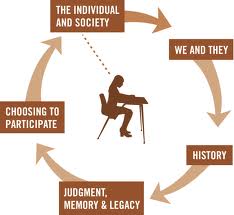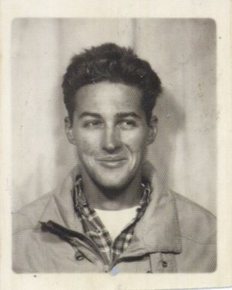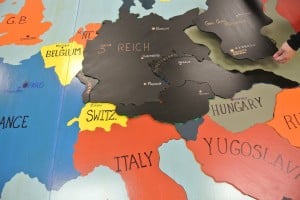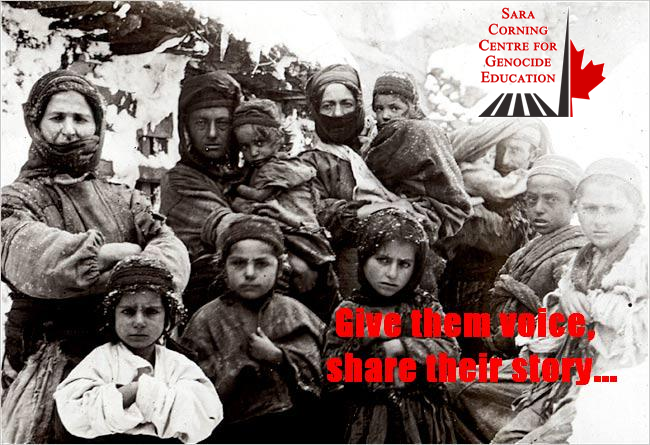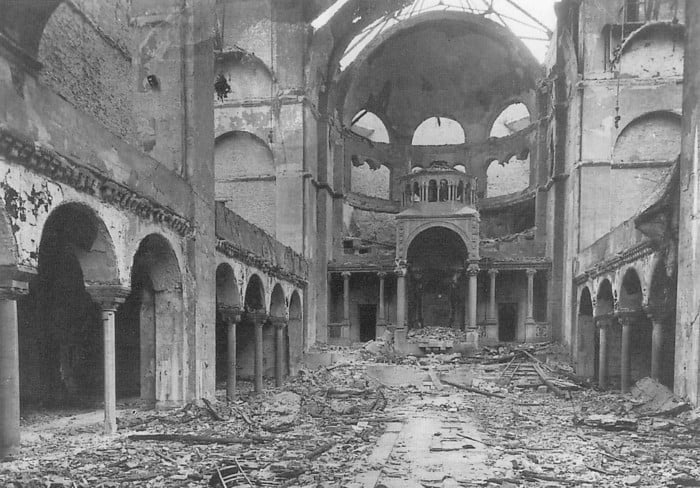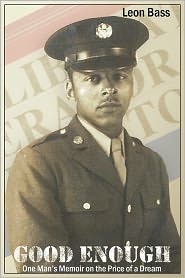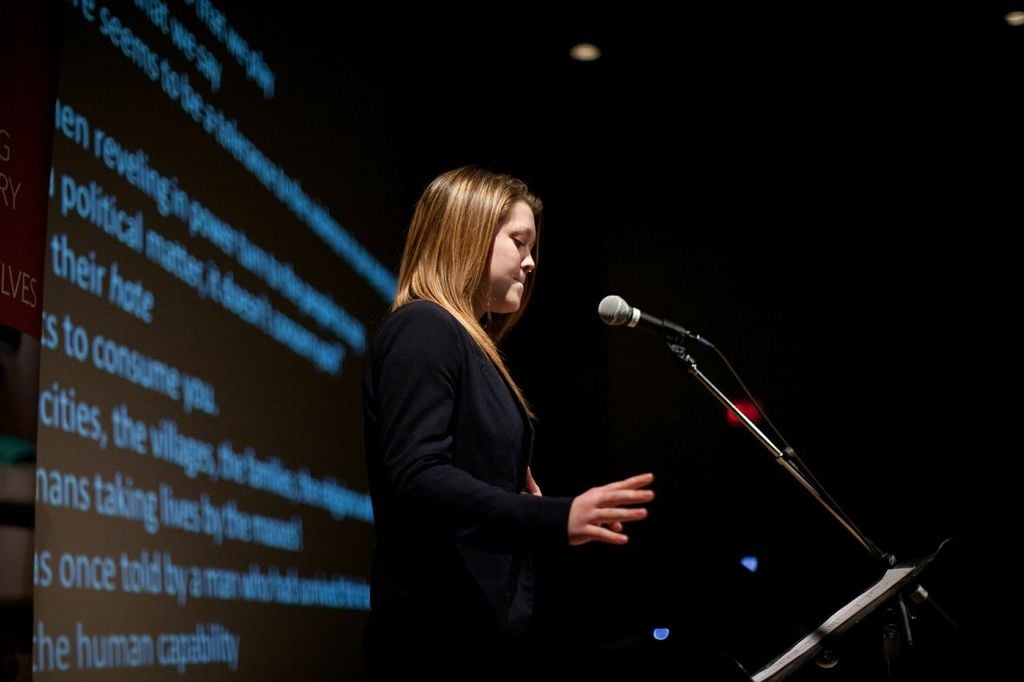“Sir, it keeps happening again and again. We don’t learn. I don’t think we’re going to get better. There doesn’t seem to be much hope.”
Three years ago a grade 12 student said this to me in my West and the World class. Every so often it echoes in my head. She was doing a research paper on Rwanda and the United Nations, and had done a significant amount of reading on the topic and she was passionately upset about how the world had allowed the Rwandan Genocide to happen.
Read More
Topics:
Innovative Classrooms,
genocide,
Genocide and Crimes Against Humanities Course,
Lesson Ideas,
CHG,
Inside a Genocide Classroom,
Social Justice,
reflection
With any new course, teachers will often ask themselves, “Where do I begin?” This is an even more daunting question when dealing with such a difficult subject as genocide. In my preparation for teaching the Grade 11 Genocide and Crimes Against Humanities course at Louise Arbour Secondary School, I asked myself, “How can the students and I relate to situations that are so extreme and beyond most of our experiences?”
Read More
Topics:
Identity,
milgram,
We and They,
Strategies,
Genocide and Crimes Against Humanities Course,
Inside a Genocide Classroom
I started journaling when I was a boy canoeing the waters surrounding my family cottage in Muskoka. My journals were filled with maps of all the places I “discov
ered” during my summers up north. As the years went by and I entered high school, the journal’s pages of maps became dotted with anecdotes from my life beyond that lake. It was around this time that I found a copy of The Journey is the Destination: The Journals of Dan Eldon at a local bookstore.
Read More
Topics:
Identity,
History,
Memorial,
We and They,
Strategies,
Genocide and Crimes Against Humanities Course,
Lesson Ideas,
English Classroom,
CHG,
Personal history,
reflection
After recently watching the movie Indiana Jones and the Last Crusade with my sons, a thought hit me. In the movie, Indiana accidently comes across the gigantic map room where Nazis are secretly planning their conquests. Leaders and rulers – and everyday citizens – throughout history (like Winston Churchill, for example) have had map rooms. My students needed one too.
Read More
Topics:
Art,
Innovative Classrooms,
Museum Studies,
Genocide and Crimes Against Humanities Course,
CHG
As a history teacher, I often struggle to help my students see the relevance of the past and understand the power it can wield in helping them to navigate the present. With this in mind, I began to plan my unit on the Armenian Genocide. This genocide occurred almost 100 years ago under the cloak of WWI in 1915, when the Ottoman government embarked upon the destruction of its Armenian population. I decided that to give voice to this genocide beyond readings and documentaries, I would invite a guest speaker from the Armenian community.
Read More
Topics:
Choosing to Participate,
Armenian Genocide,
History,
Memorial,
genocide,
Genocide and Crimes Against Humanities Course,
Lesson Ideas,
CHG,
Personal history
This Saturday marks the 75th anniversary of Kristallnacht or “Night of the Broken Glass." On the night of November 9th, 1938, Nazis and their followers looted and destroyed thousands of Jewish homes and businesses, and scores of synagogues. They killed over ninety Jews that night, and sent over 30,000 others concentration camps.
Read More
Topics:
Choosing to Participate,
History,
Memorial,
current events,
genocide,
Genocide and Crimes Against Humanities Course,
In the news,
Social Justice,
reflection
Rob Flosman is assistant head of history at Waterdown District High School in Hamilton. This year he is writing for our sister blog InterFacing. I don't want to give away all the details about his incredible project, the goal of which is to make history personal, relevant, and alive for his students and community, because he says it so well himself! With the support of a 2013 Margot Stern Strom Innovation Grant from Facing History and Ourselves, Rob is in the process of creating a truly incredible legacy for his school and community. Click here to read his first blog on the early stages of his project.
Read More
Topics:
Choosing to Participate,
Facing History Resources,
Identity,
History,
Technology,
genocide,
legacy,
Genocide and Crimes Against Humanities Course,
CHG,
Personal history
Facing History Toronto is delighted to introduce five Class Sets now available for our qualified* teachers to borrow and share with their students.
Read More
Topics:
Facing History Resources,
Genocide and Crimes Against Humanities Course,
English Classroom,
Literature
Our group spent a good bit of time walking around Warsaw and seeing its sites. The first thing to realize about Warsaw is that it is an old looking but newly constructed city. Our guides said that the Germans destroyed at least half the city when they captured it in 1939. The destruction of the Warsaw Ghetto in 1943 after the suppression of the Rebellion accounted for 10 per cent more destruction and the failed uprising of August - October 1944 destroyed another 25 per cent and depopulated what had been a city of 1.3 million. We saw a film of the destruction in the Museum of the Warsaw Uprising and the visual record is a stunning one. Entire neighborhoods were obliterated and less than 1000 lived amidst the rubble. Two hundred thousand Poles, some of them Jewish survivors of the Warsaw Ghetto Uprising, lost their lives--many simply shot randomly on street corners (marked throughout the city).
Read More
Topics:
Professional Development,
History,
Genocide and Crimes Against Humanities Course,
Personal history
As the end of each school year draws near, I feel a great deal of frustration. As students are overwhelmed with culminating assignments or the decisions that they made about completing school work for the previous 9 months, the demands on the teacher expand exponentially as well. As I work with the Growing Success system and school programs such as student success and credit rescue, I struggle to ensure that the decisions that I make maintain the integrity of the course, give students the opportunities they deserve or need, and maintain the intent of the ideals of character education. I find this overwhelming.
Read More
Topics:
Choosing to Participate,
History,
Genocide and Crimes Against Humanities Course,
Holocaust and Human Behaviour,
CHG

